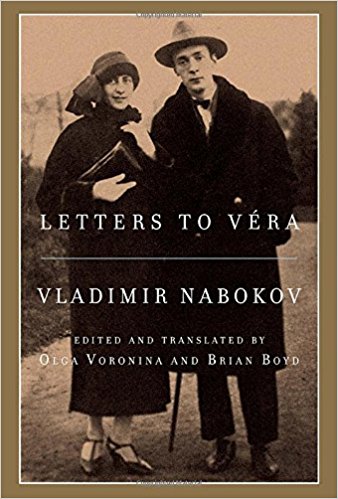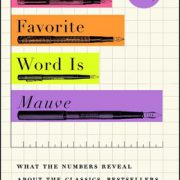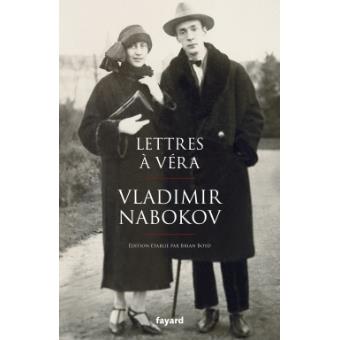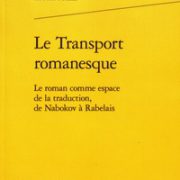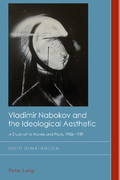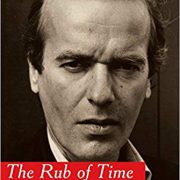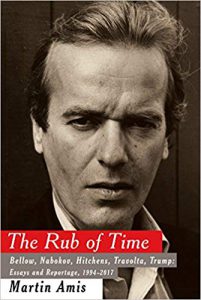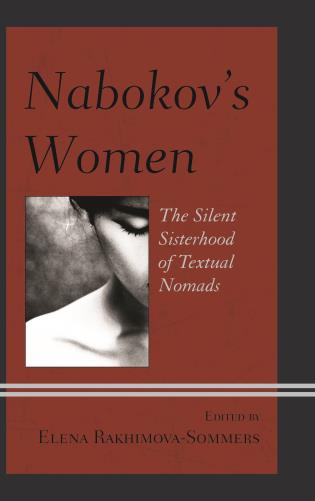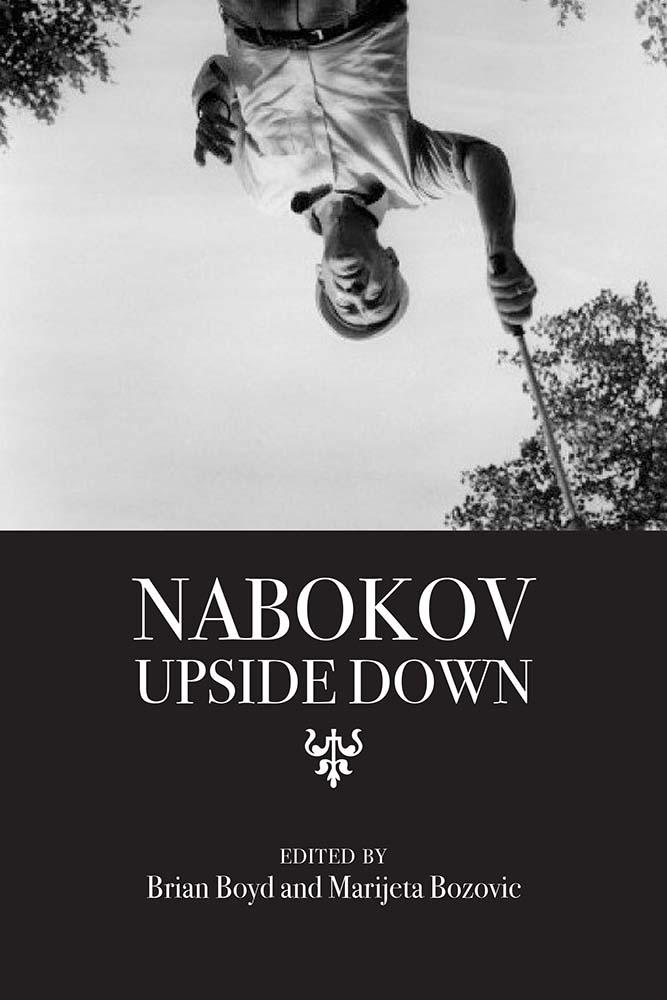« No marriage of a major twentieth-century writer is quite a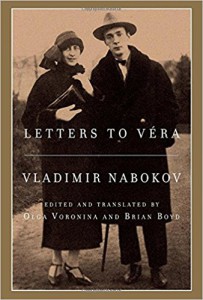 s beguiling as that of Vladimir Nabokov’s to Véra Slonim. She shared his delight in life’s trifles and literature’s treasures, and he rated her as having the best and quickest sense of humor of any woman he had met. From their first encounter in 1923, Vladimir’s letters to Véra form a narrative arc that tells a half-century-long love story, one that is playful, romantic, pithy and memorable. At the same time, the letters tell us much about the man and the writer. We see the infectious fascination with which Vladimir observed everything—animals, people, speech, the landscapes and cityscapes he encountered—and learn of the poems, plays, stories, novels, memoirs, screenplays and translations on which he worked ceaselessly. This delicious volume contains twenty-one photographs, as well as facsimiles of the letters themselves and the puzzles and doodles Vladimir often sent to Véra. »
s beguiling as that of Vladimir Nabokov’s to Véra Slonim. She shared his delight in life’s trifles and literature’s treasures, and he rated her as having the best and quickest sense of humor of any woman he had met. From their first encounter in 1923, Vladimir’s letters to Véra form a narrative arc that tells a half-century-long love story, one that is playful, romantic, pithy and memorable. At the same time, the letters tell us much about the man and the writer. We see the infectious fascination with which Vladimir observed everything—animals, people, speech, the landscapes and cityscapes he encountered—and learn of the poems, plays, stories, novels, memoirs, screenplays and translations on which he worked ceaselessly. This delicious volume contains twenty-one photographs, as well as facsimiles of the letters themselves and the puzzles and doodles Vladimir often sent to Véra. »
Le lundi 13 novembre 2017, Sophie Bernard-Léger a soutenu sa thèse de doctorat, intitulée « La création de soi par soi : origine, identités, transgressions dans l’oeuvre de Vladimir Nabokov, Romain Gary et Philip Roth ».
Le jury était composé de Luba Jurgenson (directrice, Sorbonne Université), Carole Matheron (co-directrice, Université Paris 3), Isabelle Poulin (présidente, Université Bordeaux Montaigne), Laure Troubetzkoy (Sorbonne Université), Philippe Zard (Université Paris Nanterre), Yves-Charles Grandjeat (Université Bordeaux Montaigne).
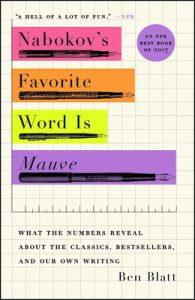
About the book :
« Data meets literature in this “enlightening” (The Wall Street Journal), “brilliant” (The Boston Globe), “Nate Silver-esque” (O, The Oprah Magazine) look at what the numbers have to say about our favorite authors and their masterpieces.
There’s a famous piece of writing advice—offered by Ernest Hemingway, Stephen King, and myriad writers in between—not to use -ly adverbs like “quickly” or “angrily.” It sounds like solid advice, but can we actually test it? If we were to count all the -ly adverbs these authors used in their careers, do they follow their own advice? What’s more, do great books in general—the classics and the bestsellers—share this trait?
In the age of big data we can answer questions like these in the blink of an eye. In Nabokov’s Favorite Word Is Mauve, a “literary detective story: fast-paced, thought-provoking, and intriguing” (Brian Christian, coauthor of Algorithms to Live By), statistician and journalist Ben Blatt explores the wealth of fun findings that can be discovered by using text and data analysis. He assembles a database of thousands of books and hundreds of millions of words, and then he asks the questions that have intrigued book lovers for generations: What are our favorite authors’ favorite words? Do men and women write differently? Which bestselling writer uses the most clichés? What makes a great opening sentence? And which writerly advice is worth following or ignoring?
All of Blatt’s investigations and experiments are original, conducted himself, and no math knowledge is needed to enjoy the book. On every page, there are new and eye-opening findings. By the end, you will have a newfound appreciation of your favorite authors and also come away with a fresh perspective on your own writing. “Blatt’s new book reveals surprising literary secrets” (Entertainment Weekly) and casts an x-ray through literature, allowing us to see both the patterns that hold it together and the brilliant flourishes that allow it to spring to life. »
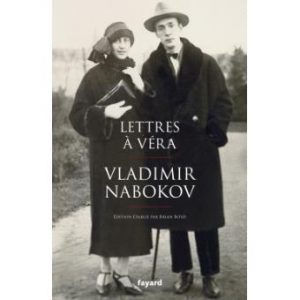
https://www.fayard.fr/litterature-etrangere/lettres-vera-9782213686585
Description de l’éditeur : « Vladimir Nabokov et sa femme Véra se sont rencontrés en 1923, à Berlin, où leurs familles respectives avaient fui le pouvoir bolchevique. Tout au long du demi-siècle que dure leur mariage, ils ne sont séparés que rarement, mais alors il lui écrit chaque jour : ainsi quand Véra part se soigner dans un sanatorium de la Forêt Noire, quand Vladimir rend visite à sa famille réfugiée à Prague, où quand Véra tarde à le rejoindre à Paris. Plus tard, ses conférences dans le Sud des États-Unis suscitent de nouvelles lettres. Dans toute cette correspondance, pour nous à sens unique – Véra ayant détruit ses propres lettres –, on voit la passion de Nabokov pour sa femme, sa vie quotidienne dans le milieu de l’émigration russe à Berlin, les bouleversements auxquels tous deux sont confrontés dans leur vie matérielle et affective, le dénuement qui est le sien lors de ses débuts à Paris, l’intérêt croissant suscité par son œuvre auprès des éditeurs et d’un public éclairé, le soutien indéfectible que lui apporte Véra.
Ces lettres, outre ce qu’elles révèlent sur l’homme, nous font découvrir le laboratoire de l’écrivain – son énergie créatrice, la pléthore de sujets qui surgissent et disparaissent, l’intensité de son travail – et on y reconnaît l’originalité de son style : sa veine parodique, poétique, sa vivacité et ses jeux de mots. »
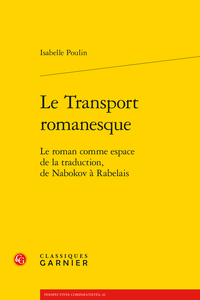
Rapporté à la notion de traduction qui s’invente à la Renaissance en même temps que le roman moderne, ou aux menaces de mort pesant sur des écrivains, le transport romanesque révèle la force d’un art du langage sans frontières – étudié dans cet ouvrage, de Nabokov à Rabelais, Cervantes, Sterne, Proust et Calvino.
Vous pouvez consulter la table des matières ici.
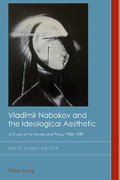 This book argues that ideology is a prism through which the work of Vladimir Nabokov needs to be considered. It is thus the first attempt to foreground questions of ideology and politics within a field that has historically been resistant to such readings.
This book argues that ideology is a prism through which the work of Vladimir Nabokov needs to be considered. It is thus the first attempt to foreground questions of ideology and politics within a field that has historically been resistant to such readings.
The perception of Nabokov as an apolitical writer is one which the author encouraged throughout the latter part of his career in his non-fictional writings and in the small number of well-rehearsed interviews that he gave. When questions of ideology and politics have arisen in scholarship, they have only been featured in passing or have merely re-confirmed the author’s self-designation as an «old-fashioned liberal». When we consider that Nabokov lived through some of the most traumatic historical ruptures of the past century then this lack of reference to ideology in the critical literature appears quite revealing.
Through the analysis of works which have previously received little attention as well as new perspectives on better known works, this book demonstrates how ideology and politics were ever-present and had an indelible effect on Nabokov’s literary aesthetics.
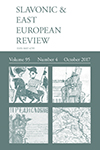
Review
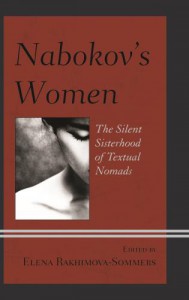
« Nabokov’s Women: The Silent Sisterhood of Textual Nomads is the first book-length study to focus on Nabokov’s relationship with his heroines. Essays by distinguished Nabokov scholars explore the multilayered and nomadic nature of Nabokov’s women: their voice and voicelessness, their absentness, the paradigm of power and sacrifice within which they are situated, the paradox of their unattainability, their complex relationship with textual borders, the travel narrative, with the author himself.
By design, Nabokov’s woman is often assigned a short-term tourist visa with a firm expiration date. Her departure is facilitated by death or involuntary absence, which watermarks her into the male protagonist’s narrative, granting him an artistic release or a gift of self-understanding. When she leaves the stage, her portrait remains ambiguous. She can be powerfully enigmatic, but not self-actualized enough to be dynamic or, for even where the terms of her existence are deeply considered or her image beheld reverently, her recognition seems to be limited to the “Works Cited” register of the male narrator’s personal life. As a result, Nabokov’s texts often feature a nomadic woman who seems to live without a narratorial homeland, papers of her own, or storytelling privileges.
This volume explores the “residency status” of Nabokov’s silent nomads—his fleeting lovers, witches, muses, mermaids, and nymphets. As Nabokov scholars analyze the power dynamic of the writer’s narrative of male desire, they ponder—are these female characters directionless wanderers or covert operatives in the terrain of Nabokov’s text? Whereas each essay addresses a different aspect of Nabokov’s artistic relationship with the feminine, together they explore the politics of representation, authorization, and voicelessness. This collection offers new ways of reading and teaching Nabokov and is poised to appeal to a wide range of student and scholarly audiences. »
With contributions of Sofia Ahlberg, Marie Bouchet, Julian W. Connolly,
David Larmour, David Rampton, Matthew Roth, Susan Elizabeth Sweeney, Lara Delage-Toriel, Olga Voronina,
Alisa Zhulina.
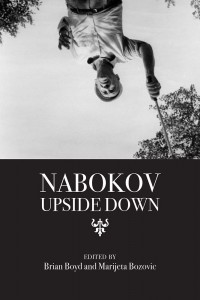
http://www.nupress.northwestern.edu/content/nabokov-upside-down-1
« Nabokov Upside Down brings together essays that explicitly diverge from conventional topics and points of reference when interpreting a writer whose influence on contemporary literature is unrivaled. Scholars from around the world here read Nabokov in terms of bodies rather than minds, belly-laughs rather than erudite wit, servants rather than master-artists, or Asian rather than Western perspectives. The first part of the volume is dedicated to surveys of Nabokov’s oeuvre that transform some long-held assumptions concerning the nature of and significance of his work.
Often thought of as among the most cerebral of artists, Nabokov comes across in these essays as profoundly aware of the physical world, as evidenced by his masterly representation of physical movement, his bawdy humor, and his attention to gustatory pleasure, among other aspects of his writing. The volume’s second half focuses on individual works or phases in Nabokov’s career, noting connections among them as well as to other fields of inquiry beyond literature. Engaged in conversation with each other and, in his editorial comments, with Brian Boyd, the essays in this volume show Nabokov scholarship continuing to renew itself. »
Contributors: Shun’ichiro Akikusa, Robert Alter, Stephen Blackwell, Brian Boyd, Marijeta Bozovic, Yannicke
Chupin, Julian Connolly, Galya Diment, Dana Dragunoiu, Lara Delage-Toriel, Paul Grant, Monica Manolescu,
Naomi Olson, David Rampton, Stanislav Shvabrin, Susan Elizabeth Sweeney.

